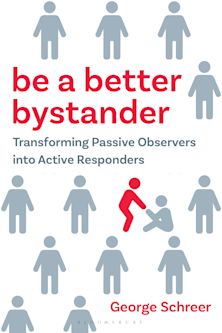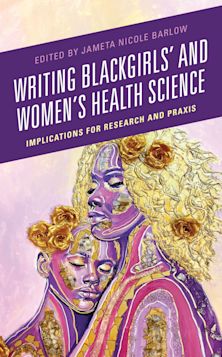- Home
- ACADEMIC
- Psychology
- Social Psychology
- Jews and Arabs in Israel Encountering Their Identities
Jews and Arabs in Israel Encountering Their Identities
Transformations in Dialogue
Jews and Arabs in Israel Encountering Their Identities
Transformations in Dialogue
You must sign in to add this item to your wishlist. Please sign in or create an account
Description
Jews and Arabs in Israel Encountering their Identities reveals the powerful potential of inter-group dialogues to transform identities and mutually negating relations. Using meetings with Israeli Jewish and Palestinian Arabian students who attend the Hebrew University of Jerusalem as case studies, Kahanoff examines the hidden psychological dimensions of the Israeli-Palestinian conflict and illustrates how each participant’s sense of identity shifted in response to encounters with conflicting perspectives. Kahanoff contends that an awareness of the limitations of dialogue, without the renunciation of its value, is the most realistic basis upon which to build a sustainable agreement. This book is recommended for scholars of psychology, sociology, religious studies, political science, and communication studies.
Table of Contents
Chapter One: Split Discourse: Jews and Arabs Converse
Part II. Behind the Scenes
Chapter Two: Internal Jewish-Israeli Dialogues
Chapter Three: Internal Palestinian-Arab Dialogues
Part III. Inner/Hidden Dialogues
Chapter Four: Jewish Israeli Dilemmas
Chapter Five: Palestinian Arab Dilemmas
Chapter Six: Theoretical Aftertalks: Dialogical Transformations
Product details
| Published | 13 Apr 2016 |
|---|---|
| Format | Ebook (Epub & Mobi) |
| Edition | 1st |
| Extent | 280 |
| ISBN | 9781498504980 |
| Imprint | Lexington Books |
| Publisher | Bloomsbury Publishing |
About the contributors
Reviews
-
Maya Kahanoff's Jews and Arabs in Israel Encountering Their Identities is a milestone in ethnic and sectarian conflict analysis for two major reasons. First, Kahanoff is the rare scholar who skillfully uses depth psychology to explain the complexities of identity formation in the context of historical experience. Second, she presents the Israeli Arabs and Jews in their own words to make her case persuasively.
Joseph V. Montville, School for Conflict Analysis and Resolution, George Mason University
-
Controlled and intentional inter-group encounters have been a feature of Arab-Jewish relations in Israel for more than four decades. They have a long and well-documented track-record and an almost equally-long literature critical of their goals, intentions, and success. Maya Kahanoff takes us beyond the usual level of the inter-group encounter to examine the dynamics that take place between and within each group and then, most boldly, within the consciousness of individual participants. She argues for the unsettling and dangerous nature of dialogue as crafting a space where individuals encounter not only the image or narrative of the other but also the image or narrative of the self. Therein lies dialogue’s potential for transformation, but as a double-edged sword: towards greater understanding of the other or responding to a new sense of vulnerability, and in retreat, towards a hardening of the self’s protective shell. Kahanoff’s study is an original and major contribution to the field of dialogue, its potential and limitations, in deeply rooted and intractable conflict.
Kevin Avruch, George Mason University
-
In her book, Maya Kahanoff accurately captures the inner dynamics of the Arab-Jewish dialogue process. These dynamics are especially well-pronounced when she presents the series of psychological predicaments that facilitators and participants have to face before declaring their encounter to be a successful one. By uncovering the reality of the wide spectrum of feelings associated with multiple identities in each Arab and Jewish dialoguer, Kahanoff manages to break away from the simplistic and classic dichotomies of victim/oppressor; weak/strong; bad/good; moral/immoral. This book offers powerful insights in the professional and personal development of a peacemaker who dares to question the emotions associated with the power dynamics of Arab-Jewish encounters. Kahanoff takes us from one story to another in her personal and academic journey with dialogue and emerges with a powerful tool of ‘empathetic appreciation’ as a gateway to recognizing each other’s pain. In addition, she offers useful analytical frameworks to make sense of the complexity of meeting and handling the other inside each of us.
Mohammed Abu-Nimer, School of International Service, American University



































